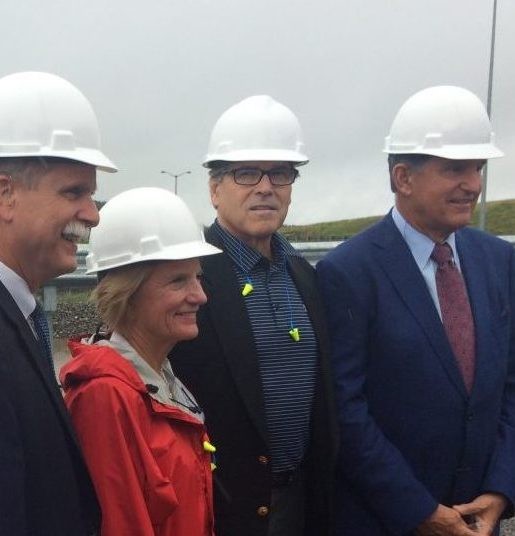Hospitals are economic linchpins for rural communities, health advocates say. The farm bill ought to sharpen its focus on preventing more rural hospital closures.
Congress should ensure that the farm bill does more to address rural healthcare needs, especially shoring up the finances of struggling rural hospitals, rural health advocates say.
Though the farm bill is primarily focused on nutrition and agriculture, one part of the bill also addresses community needs like health care.
“There is a long history with USDA and the farm bill when it comes to health care in rural communities, particularly when it comes to funding care through loans and grants,” said Maggie Elehwany, government affairs and policy vice president for the National Rural Health Association.
The Republican bill, released by House Ag Committee Chair Mike Conaway (TX) Friday, already includes a provision to allow the secretary of Agriculture to move more funds into health-care needs through the declaration of a rural health emergency. But legislators need to understand that closing rural hospitals isn’t just a health care problem, Elehwany said. It’s also a big rural economics issue.
The Daily Yonder spoke with Elehwany to learn about the health-care implications of the farm bill and what rural health advocates think needs to be improved in the legislation moving forward. The following interview was recorded over the phone and is lightly edited for length and readability.
+++
Bryce Oates: What should folks know about the farm bill and USDA when it comes to rural health issues?
Maggie Elehwany: There is a long history with USDA and the farm bill when it comes to health care in rural communities, particularly when it comes to funding care through loans and grants. When we were discussing the farm bill draft with Congressional staff during the last year or so, it sounded like they were making the health component even more significant. It’s our position, at the National Rural Health Association, that the bill should be about improving access to care in rural America, particularly addressing the [healthcare] workforce shortages. On top of that, what we have is generally an older, poorer and a sicker rural population with a higher percentage of chronic diseases than the urban population. This makes health care harder to provide, and when you add the dispersed geographic conditions, the spread out population, it can be difficult to provide access to health care.
Oates: Are there any good ways that you see the House draft addressing the health care workforce or capital needs for rural health outcomes?
Elehwany: We’re certainly happy to see the rural health emergency section. It’s a little vague, but it gives the [Agriculture] secretary broad authority to declare a rural health crisis, and there’s several happening in rural health care at the moment. That’s a great section, and could really make a difference. We’re talking about a real shortage of doctors and care providers in rural areas. You’ve got 20% of the population yet only 9% of the physicians. Worse, what we’re seeing is a crisis in the number of hospitals that are closing. What we’re trying to point out, as one hospital CEO says, is that there’s a three-legged stool of hospitals, churches and schools for rural America. If you don’t have one of the three, the whole town or county collapses. What we’re seeing is that when the hospital closes down, banks can also shut down, grocery stores are shuttered. When the hospital closes, the doctors leave, the nurses leave, the pharmacists leave, and these are some of the few professional jobs available in rural communities. So we argue to House staff that health care for rural America is infrastructure. It’s every bit as important as the roads and the sewage lines to function properly. We’re encouraged that they included the language about the secretary declaring health emergencies so that more resources and funding can be used.
Oates: Is this section included now because of the opioid crisis?
Elehwany: I think that’s why it’s there right now, yes. The opioid crisis is a major health care emergency and is causing many deaths in rural communities. We would like to see more specific language in the bill covering the funding needs of rural hospitals attempting to address the opioid crisis.
Oates: What about rural communities makes them susceptible to having elevated health care needs in addition to being older in age? Does it have to do with the kinds of jobs rural people tend to have?
Elehwany: Yes, agriculture is one of the most dangerous occupations in America? So that is a major driver of injuries and health problems for farmers and farmworkers. The timber and lumber industry is also one of the most dangerous sectors. So is the fishing industry. We see the USDA as interested in solving problems specific to rural health needs, and the House draft is a good start, but we’d like to see much more specific language and details about what is funded in the final farm bill.
Oates: There’s some mention in your blog post at the Farm and Ranch Stress Assistance Network, as well as some good journalism on this subject recently. How does the House draft address farm and ranch stresses happening because of the current agricultural crisis?
Elehwany: There is a provision in the bill that addresses the STRESS Act, which we support, though again specific funding is not included. For those in rural areas seeking mental health services, they face two major obstacles: availability and accessibility. In the majority of rural counties, there are no psychologists, no psychiatrists. The Farm and Ranch Stress Assistance Network (FRSAN) could help support agricultural workers and their families in rural communities by providing easily obtainable resources for mental health services.
Oates: Have you heard anything about what’s happening in the Senate? Are we going to see similar provisions in their version of the bill?
Elehwany : That’s certainly possible and we’re hopeful that they’ll generate an even better farm bill that provides some more specific details related to funding and rural health. Our staff is working with the Senate Agriculture Committee to provide input, and we’re hearing that the Senate bill is going to be more bipartisan. But they are also going more slowly and taking their time. I haven’t seen any specific language or any drafts from the Senate, so we’ll see.
Oates: Are there other programs within the USDA you’d like to highlight?
Elehwany: When it comes to USDA lending, one of the things we’d like to see is more focus on the hospitals that are struggling. There are incredibly low default rates for rural hospitals borrowing from USDA, and that’s a good thing. You also have to give this administration credit for helping to ease the red tape and regulatory burden of the lending programs, which is something our members support. That’s one of their big focus areas. But the big priority should be outlining support for struggling hospitals. We’d like to see a percentage of the funding, even if it’s a small percentage, focused on rural hospitals in economic danger. It’s kind of like when Congress passed the Community Reinvestment Act that mandated banks to lend in underserved communities. We’re not asking for USDA to make risky loans. We just think they need to focus where the needs are greatest, and that’s the places where rural hospitals are in danger of closing.
Oates: Where are those places?
Elehwany: The rural hospital closure crisis is most acute in places that did not participate in the Medicaid expansion under Obamacare, primarily in the Deep South and Texas. Many hospitals in this region are really hurting, and things are getting worse. One year ago, we had 40% of rural hospitals operating at a loss. This year it’s already 44%. We’d love to see more help and outreach focusing in this region. Without Medicaid, many people are still either uninsured or underinsured. This means rural hospitals are still mandated to provide care, usually in the emergency rooms, but then they’re not reimbursed by insurance companies or Medicaid. This causes a lot of the economic losses we see for rural hospitals. In addition, rural hospitals often serve as feeder hospitals for future transfers. So the rural hospital might be paid from the out-of-pocket portion of a patient’s deductible, which can be harder to collect, then send a patient to a bigger urban hospital where the whole bill will be covered by Medicaid or private insurance. These are some of the unique needs of rural hospitals, and some of the reasons why they are important in the health infrastructure of our nation. We’re supportive of USDA, and the farm bill, for making commitments that will help to keep these rural hospitals open.



